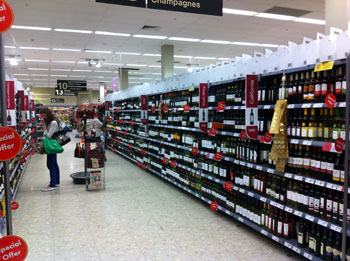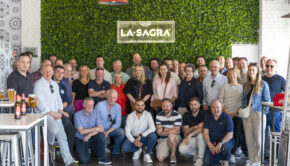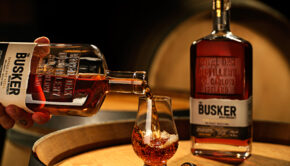Lower excise could mean more jobs in independent off-licences – NOffLA

New figures from the National Off-Licence Association indicate that half of its members suffered a drop in sales in 2013 with over 58% reporting that if the Government puts any more excise on alcohol, they’ll have to close down.
4 June 2014
According to NOffLA, “The content of the submission is based on our members’ commercial experience at the coalface of retailing alcohol, reinforced by a comprehensive internal survey completed by NOffLA members between April and May 2014”.
Excise increases ’13 & ’14
When combined, Budget 2013 and Budget 2014 introduced substantive increases in the alcohol excise duty for beer and cider (+43%), spirits (+33%) and wine (+56%), states NOffLA.
The report – part of NOffLA’s Pre-Budget Submission – points out that the Irish consumer now pays €4.87 to the Government for a bottle of wine costing €9 compared to no excise duty at all in Spain, Italy and Germany.
In the case of spirits, the Government takes €16 or two-thirds of the cost on a €24 litre bottle while taking 70 cent on each 500ml can of beer.
Some 3,000 jobs have been lost in the independent off-licence sector over the past six years with 35% of respondents having had to let staff go as a direct consequence of the excise increases in Budgets 2013 & 2014.
61% of off-licensees report that more jobs will have to go if the Government taxes alcohol again in next October’s Budget.
NOffLA’s proposed measures in its pre-Budget submission “are designed to safeguard the remaining 5,800 jobs, stimulate growth within the industry, support local communities and promote the responsible consumption of alcohol”.
Interestingly, 56% of the respondents said that they’d be able to hire more staff and 35% claimed they’d increase staff wages if the last two excise tax increases on alcohol were reversed.
NOffLA also wants to see a ban on below-cost sales which, it argues, would be more effective than Minimum Unit Pricing.
"Increasing excise duty does not discourage alcohol consumption, rather it contributes to unemployment, promotes criminal activity and removes all public health controls," commented NOffLA Chairperson Evelyn Jones.
Discounted alcohol costs
Discounted alcohol in supermarkets loses the Exchequer €24 million in VAT a year and NOffLA states that Ireland is out of line with the rest of Europe in excise rates with a consequently negative effect on tourism but a highly positive effect on cross-border purchasing.
Illegal cross-border trading and smuggling are closely linked to high tax rates, it states. Alcohol products are also prime targets for counterfeiters in the European market due to their brand value, high tax and the excise component of the final price.
According to the Revenue Commissioners, the number of seizures of counterfeit and contraband alcohol in Ireland has increased by over 440% from just over 115 in 2008 to over 507 seizures in 2013.
“NOffLA members are highly-trained and responsible local retailers that contribute to their communities through direct investment and local employment,” stated Evelyn Jones, “We are calling on the Government to reintroduce a ban on below-cost selling of alcohol and provide security to the 92,000 jobs associated with the alcohol industry while ensuring a more effective means of reducing alcohol consumption.
“While still operating in a challenging economic climate, NOffLA members are committed to local communities and have clearly stated a desire to invest and continue to encourage the responsible consumption of alcohol.”
“Large multiples can use below-cost sales as a footfall driver to the detriment of smaller retailers and the most vulnerable in society,” said Evelyn Jones, adding, “As with most other SMEs in Ireland, the impact of the severe lack of access to credit for independent off-licences is critical and the large excise increases have had a devastating impact on cashflow for importers and retailers due to the increased excise liability to Revenue and their strict credit terms.”
“By way of example the two excise increases combined represent a 62% increase in duty on wine. Before Budget 2013, if 1,000 cases of wine (12x75cl) were imported/taken out of bond in a month, the excise duty would have been €23,640. Post-Budget 2013 it was €33,360 and post-Budget 2014 €38,240 for the same volume.
“The total payment (including VAT) is now €47,035 – that’s an extra €17,958 per 1,000 cases that has to be found per month , frequently payable at the point-of-entry at a time when the availability of credit is at an all time low .”
NOffLA believes that the Government has the power to do something positive for the Irish drinks industry in the next Budget.
“This is the message that we hope the Minister will take on board by recognising the fact that there is indeed a correlation between job losses in the drinks industry and excise duty increases but more importantly, a correlation between job-creation and duty reversal.”



 Print
Print






Fans 0
Followers